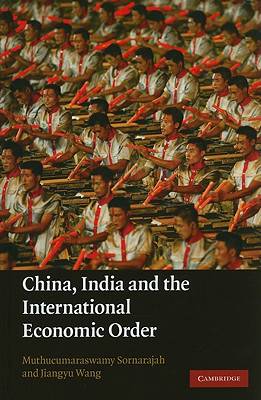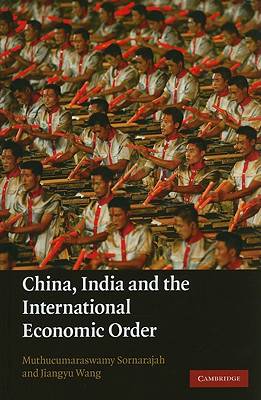
Bedankt voor het vertrouwen het afgelopen jaar! Om jou te bedanken bieden we GRATIS verzending (in België) aan op alles gedurende de hele maand januari.
- Afhalen na 1 uur in een winkel met voorraad
- In januari gratis thuislevering in België
- Ruim aanbod met 7 miljoen producten
Bedankt voor het vertrouwen het afgelopen jaar! Om jou te bedanken bieden we GRATIS verzending (in België) aan op alles gedurende de hele maand januari.
- Afhalen na 1 uur in een winkel met voorraad
- In januari gratis thuislevering in België
- Ruim aanbod met 7 miljoen producten
Zoeken
€ 275,45
+ 550 punten
Omschrijving
With contributions by a variety of internationally distinguished scholars on international law, world trade, business law and development, this unique examination of the roles of China and India in the new world economy adopts the perspectives of international economic law and comparative law. The two countries are compared with respect to issues concerning trade and development, the World Trade Organization, international dispute settlement, regional/free trade agreements, outsourcing, international investment, foreign investment, corporate governance, competition law and policy, and law and development in general. The findings demonstrate that, though their domestic approaches to economic issues diverge, China and India adopt similar stances at the international level on many major issues, recapturing images which existed during the immediate post-colonial era. Cooperation between China and India could provide leadership in the struggle for economic development in developing countries.
Specificaties
Betrokkenen
- Auteur(s):
- Uitgeverij:
Inhoud
- Aantal bladzijden:
- 660
- Taal:
- Engels
Eigenschappen
- Productcode (EAN):
- 9780521110570
- Verschijningsdatum:
- 26/08/2010
- Uitvoering:
- Hardcover
- Formaat:
- Genaaid
- Afmetingen:
- 155 mm x 229 mm
- Gewicht:
- 1156 g

Alleen bij Standaard Boekhandel
+ 550 punten op je klantenkaart van Standaard Boekhandel
Beoordelingen
We publiceren alleen reviews die voldoen aan de voorwaarden voor reviews. Bekijk onze voorwaarden voor reviews.









